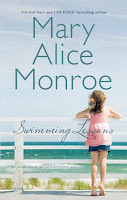I grew up here in Mount Pleasant. Reading "Last Light Over Carolina" brought back so many memories of growing up here. I recall the fun and adventure my sister and I had along the Shem Creek.
Some days were spent playing "fort" among the stacks of large shrimp nets at the dock. Some days were spent in the backyard of my grandmother’s house facing the boat landing. Nets were strung from the trees where my grandfather, Capt. Junior, would repair them for the boats. These nets made great hammocks to lay in with the shade of the large live oaks in their yard. Everyday at lunch, the crew from the docks would come up to the house for a delicious home cooked meal. My grandmother cooked for an army of hungry hardworking men and a few grandkids!
Back then our family had seven boats tied up at our fish house. Our “fleet” was painted the traditional orange and green and named after members of the family. My dad’s, Capt. Wayne Magwood, was the Scotty and Sherryl, named after his brother and sister.
My sisters and I loved going out shrimping. Grudgingly waking up before the sun only to be rewarded with the most beautiful sunrise that spanned the horizon. Curled up on the bunk in my dad’s room, we were at least able to sleep a few more hours before the nets came up. When the nets were opened on the deck it was time to work. The crew, including us children, sorted the shrimp, fish and blue crabs. As we grew into teenagers we would sunbath on the roof of the cabin.
With another shrimp season upon us, I look forward to gathering up the kids to head out to open waters to enjoy a very beautiful sunrise, the first light, on board the family shrimp boat.


.jpg)




